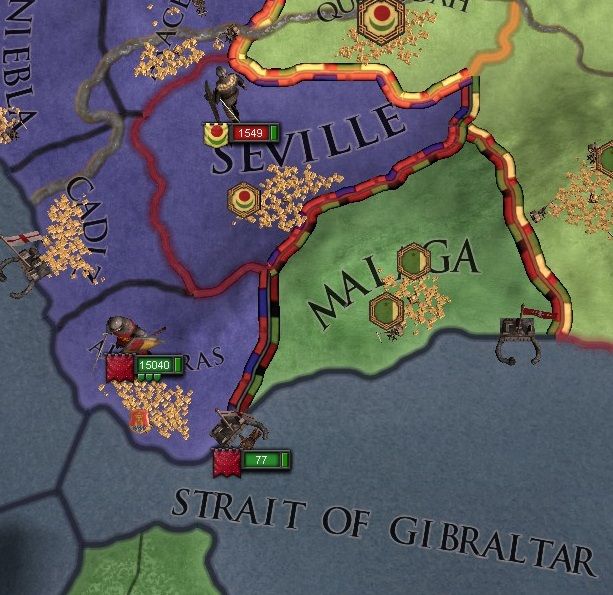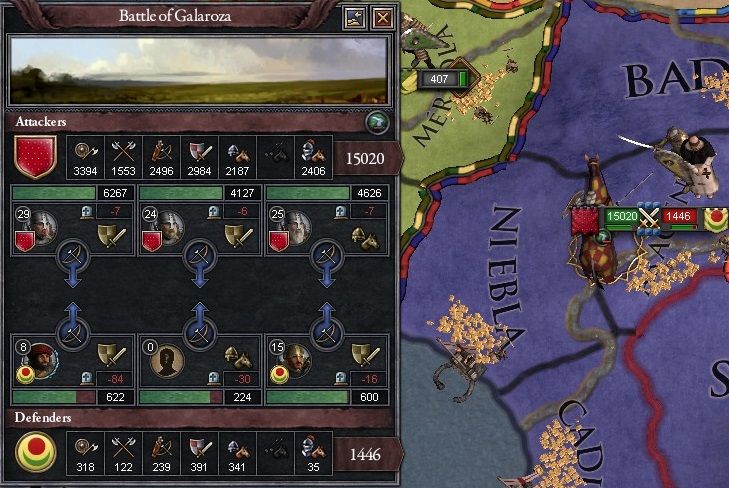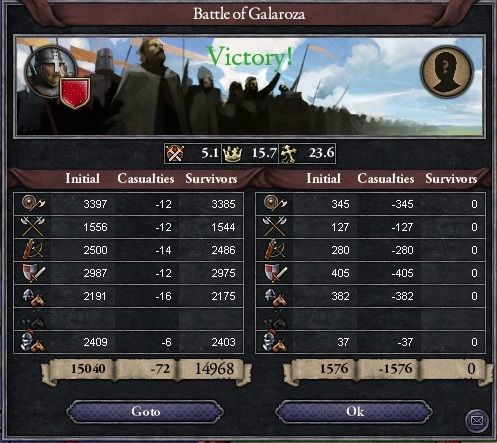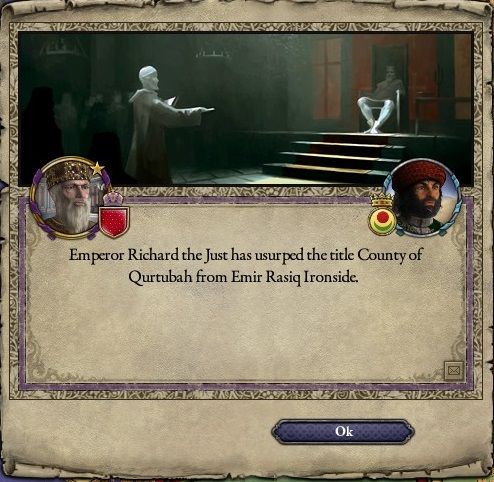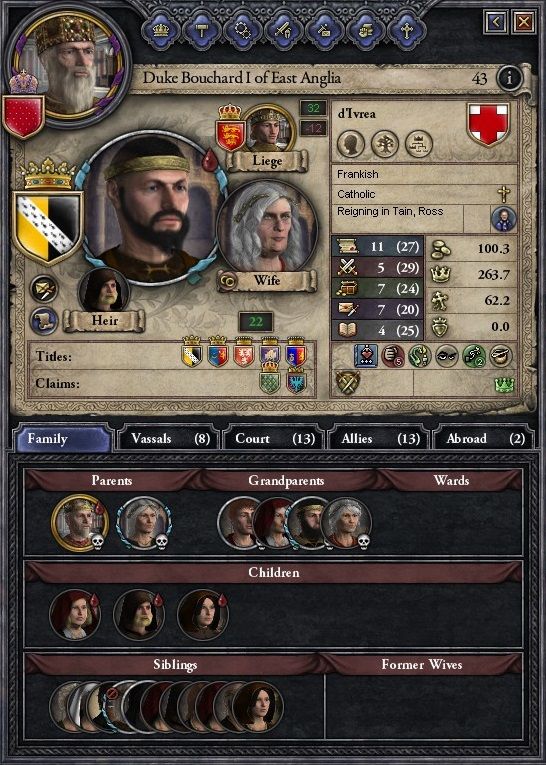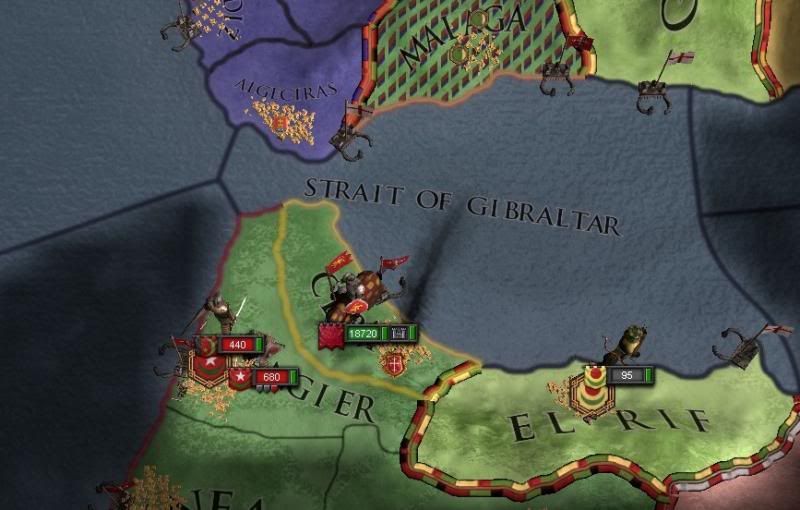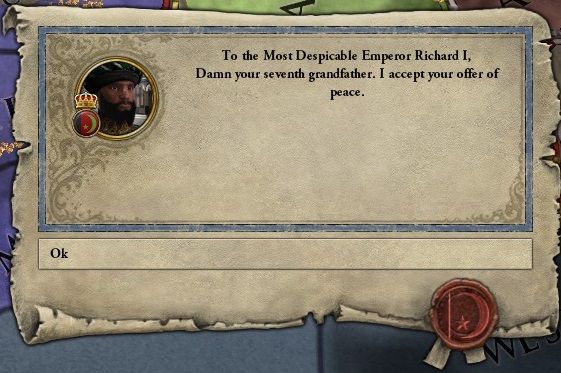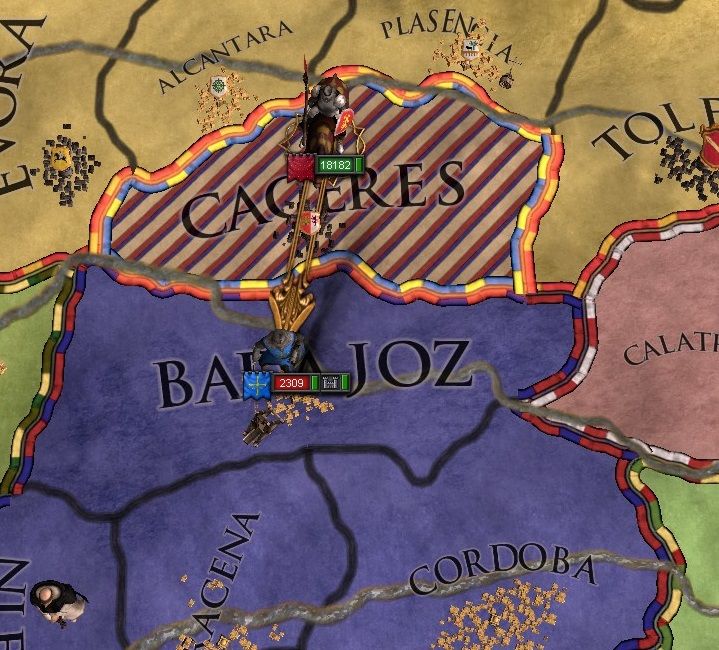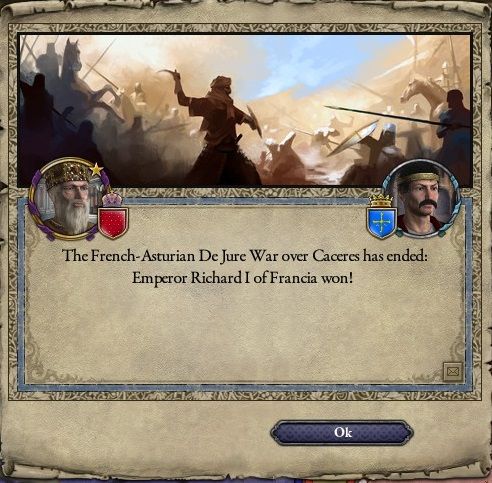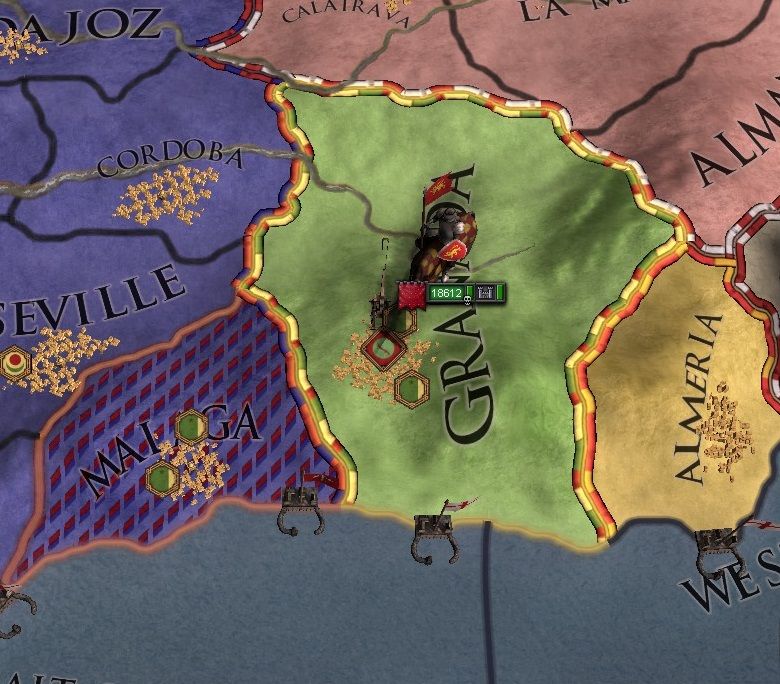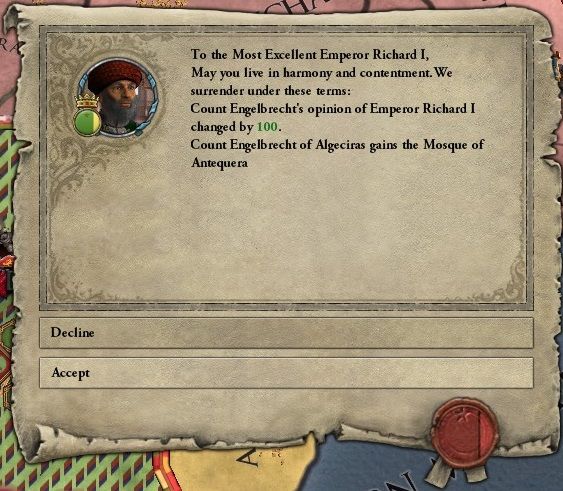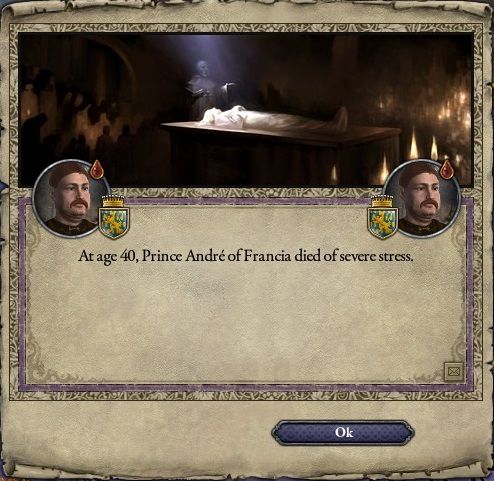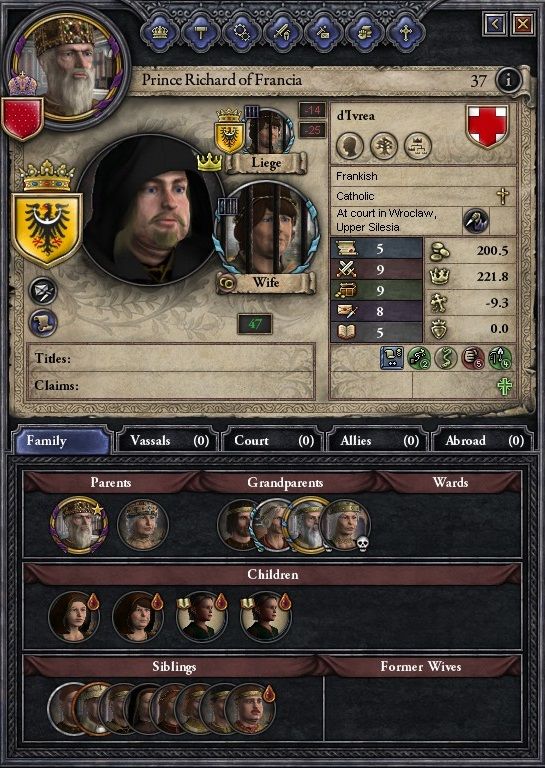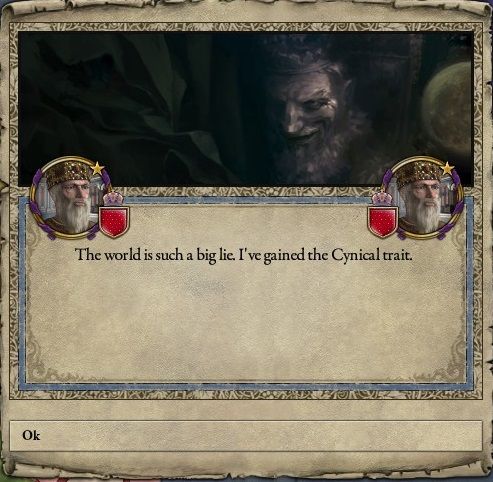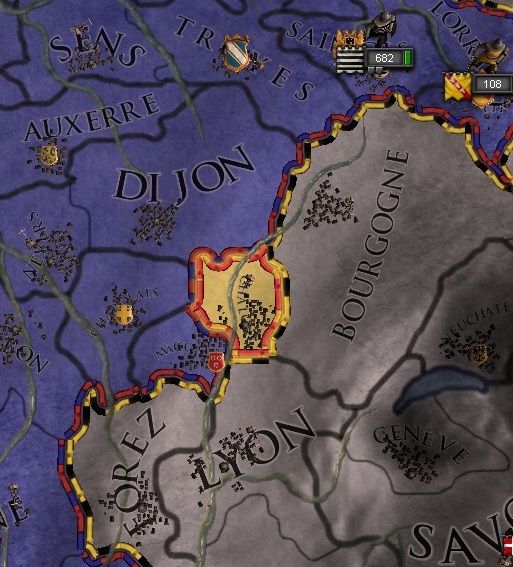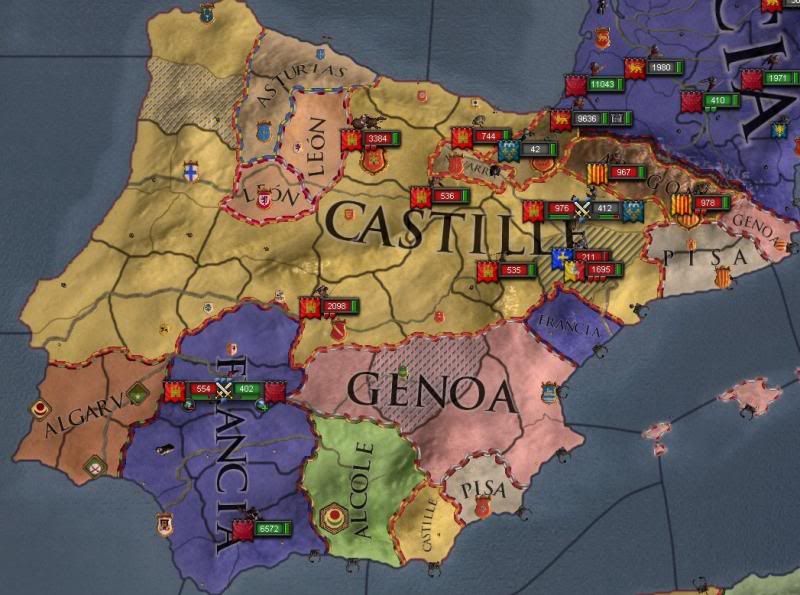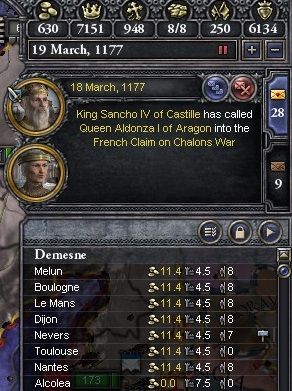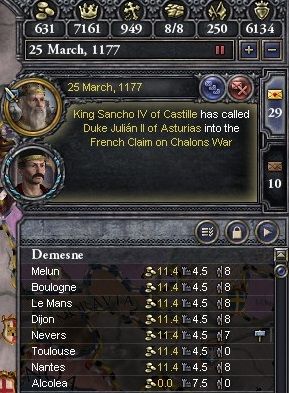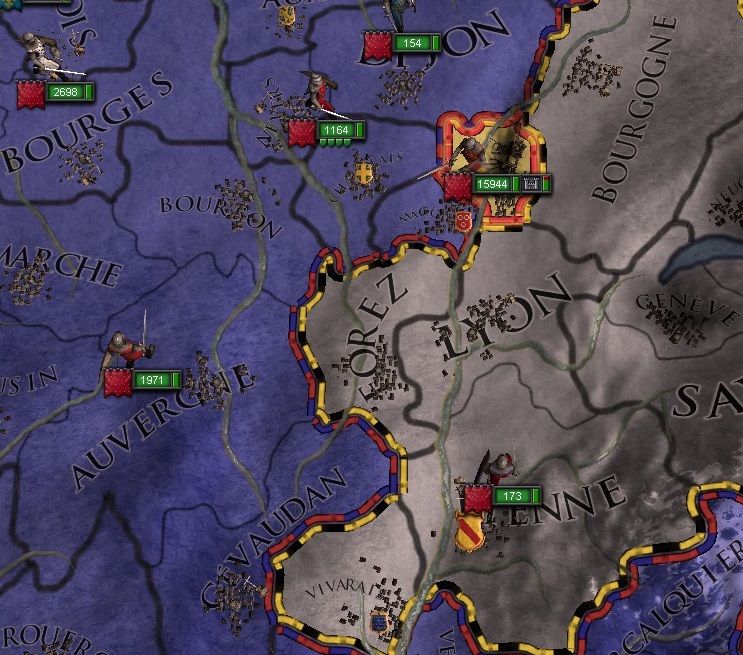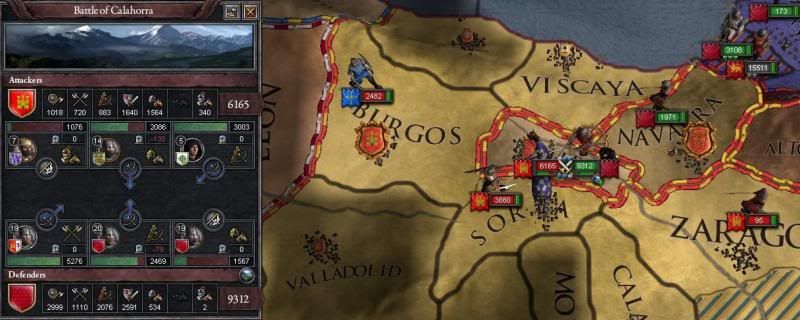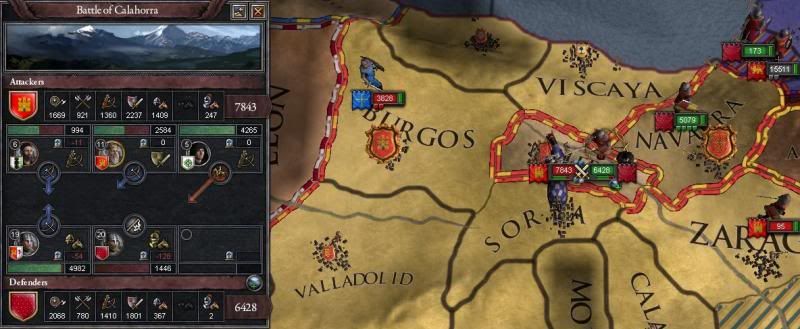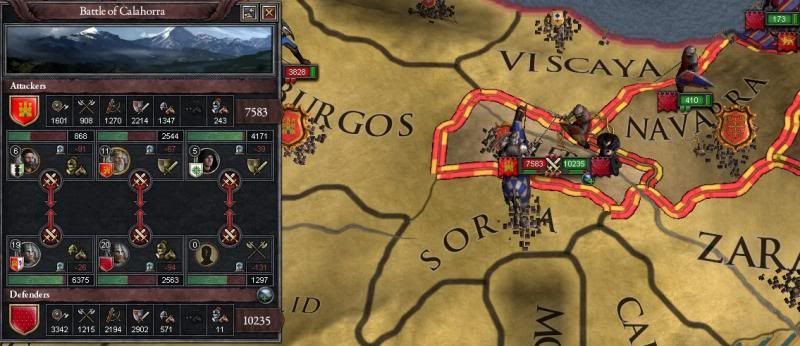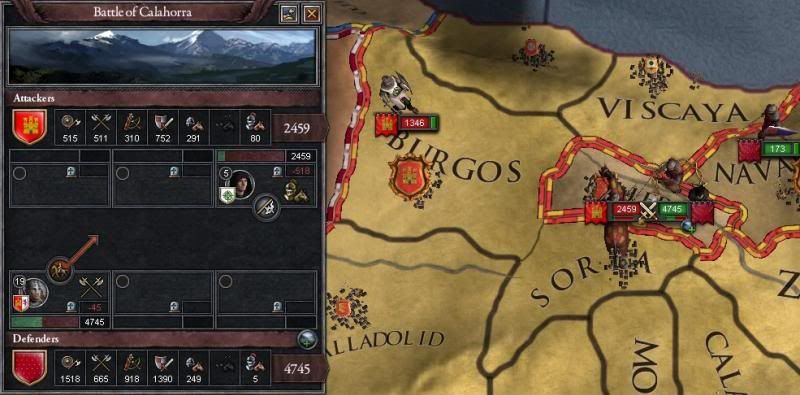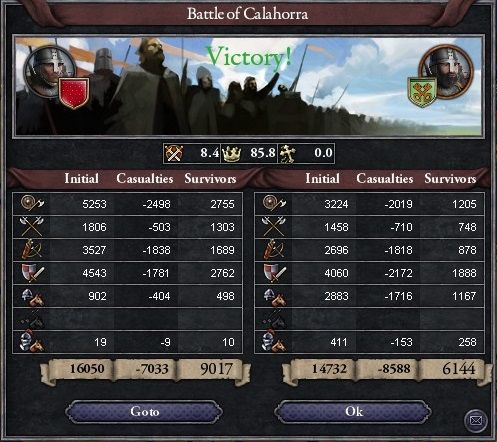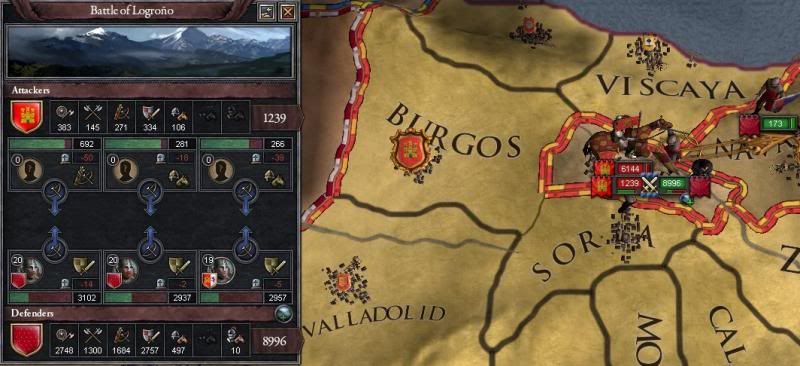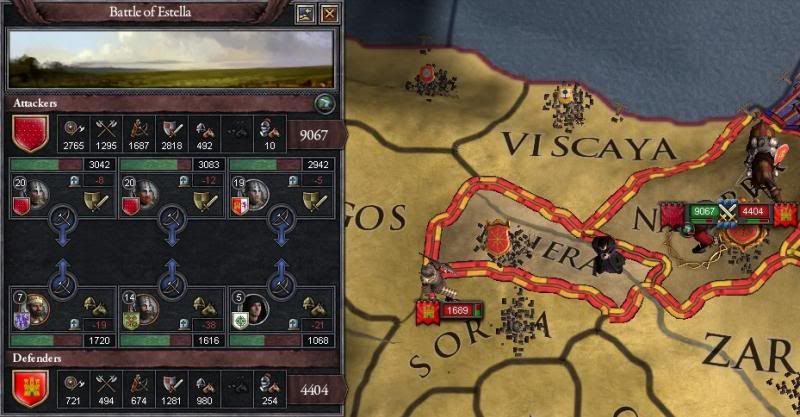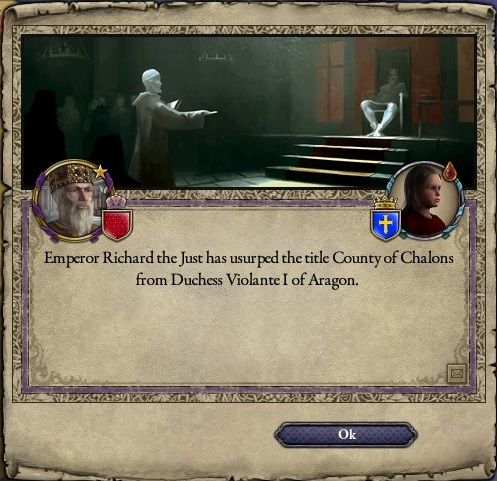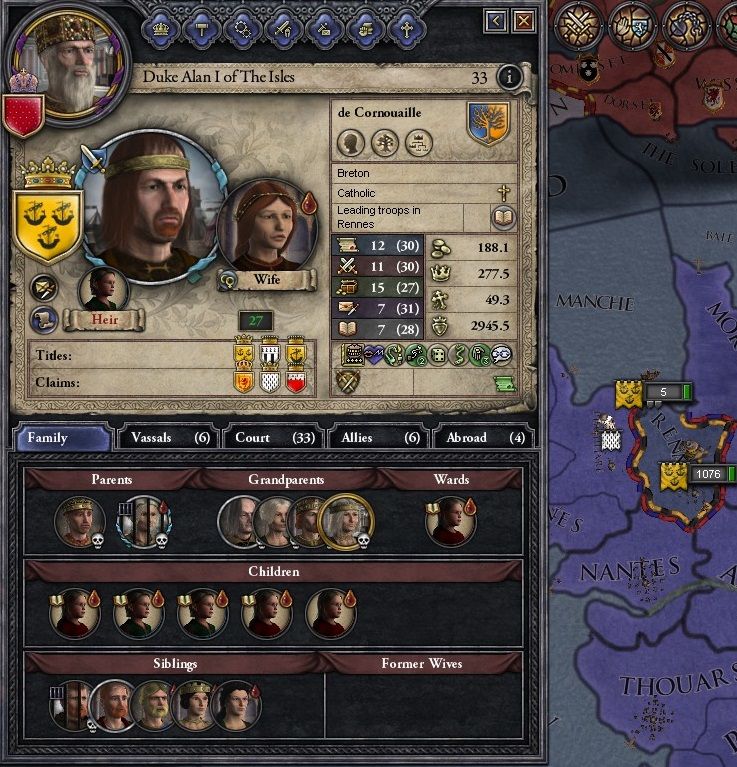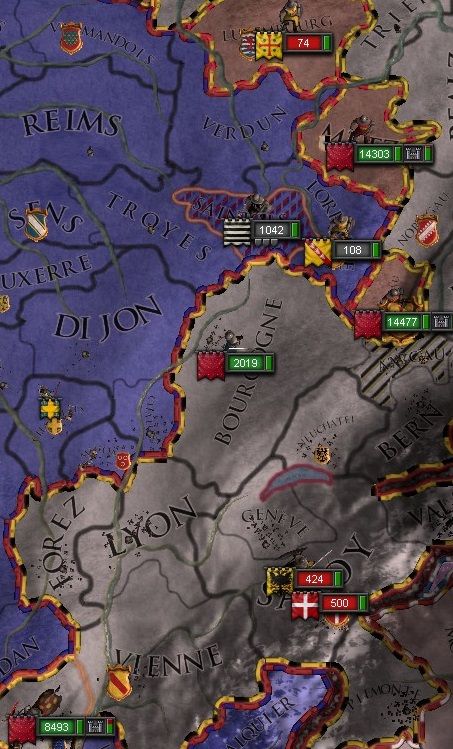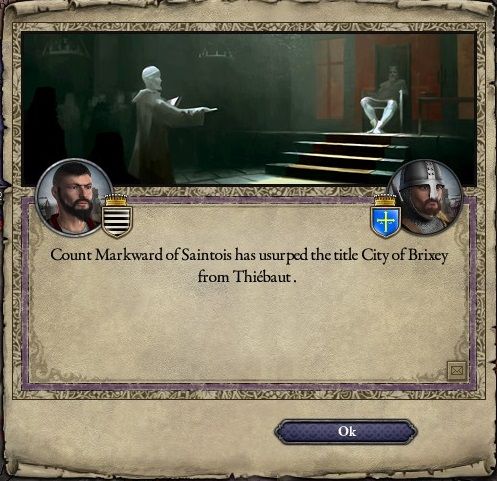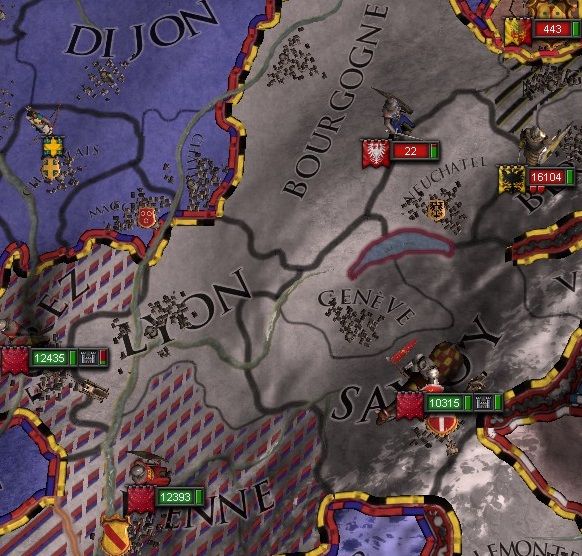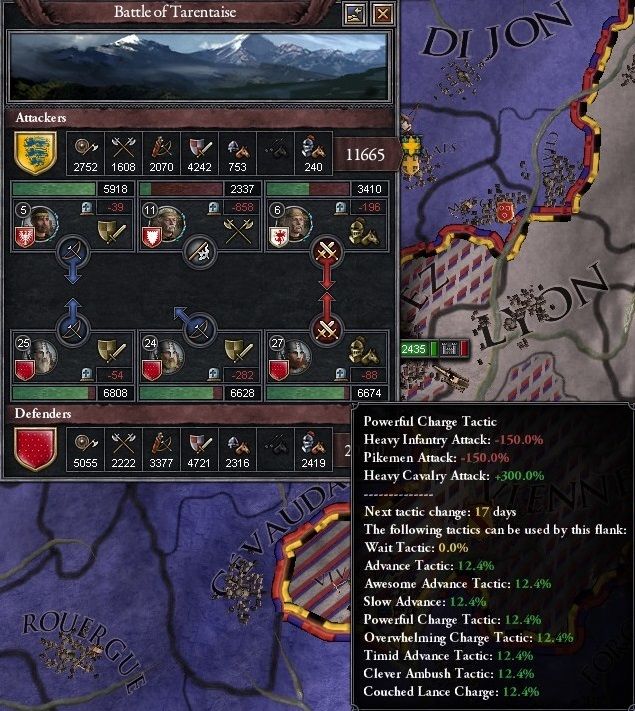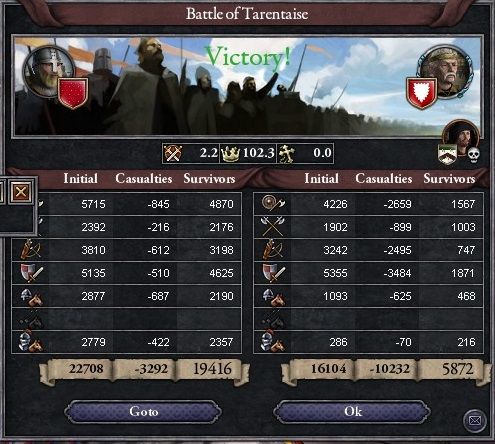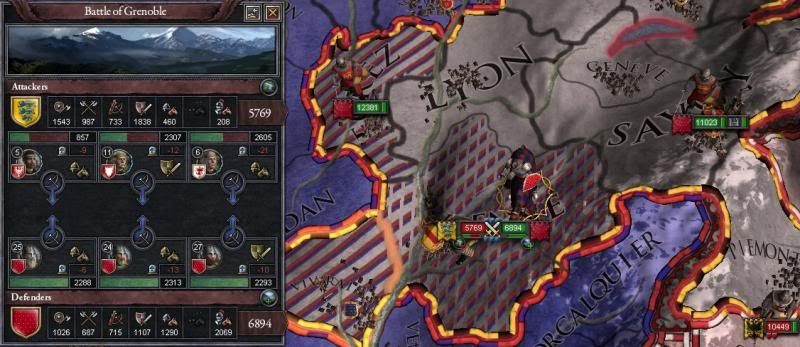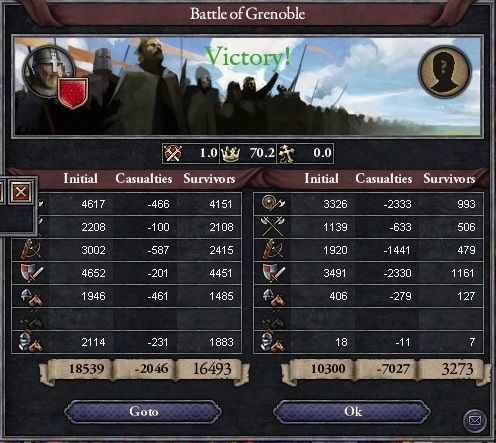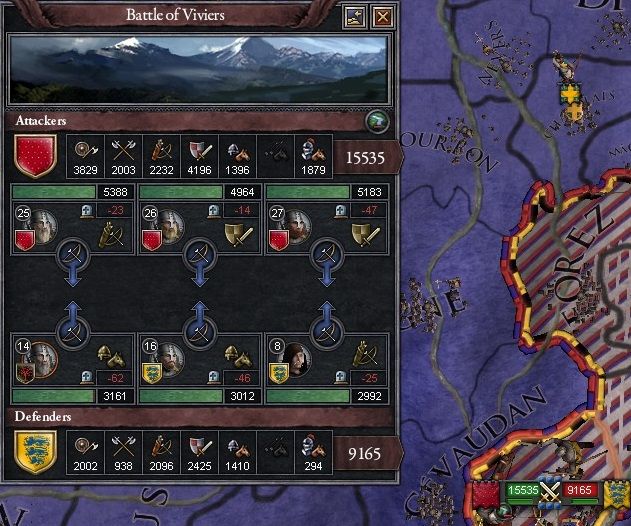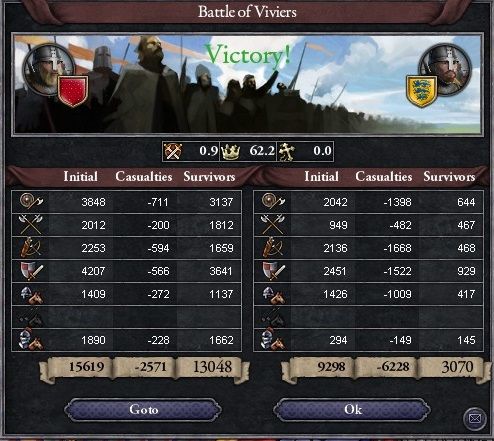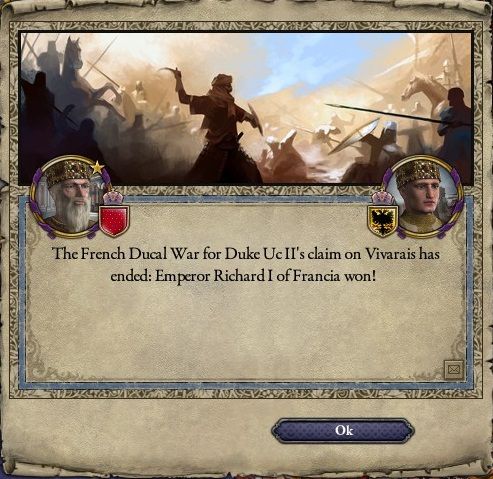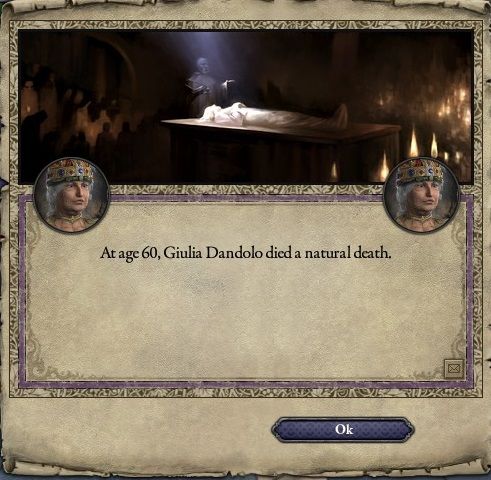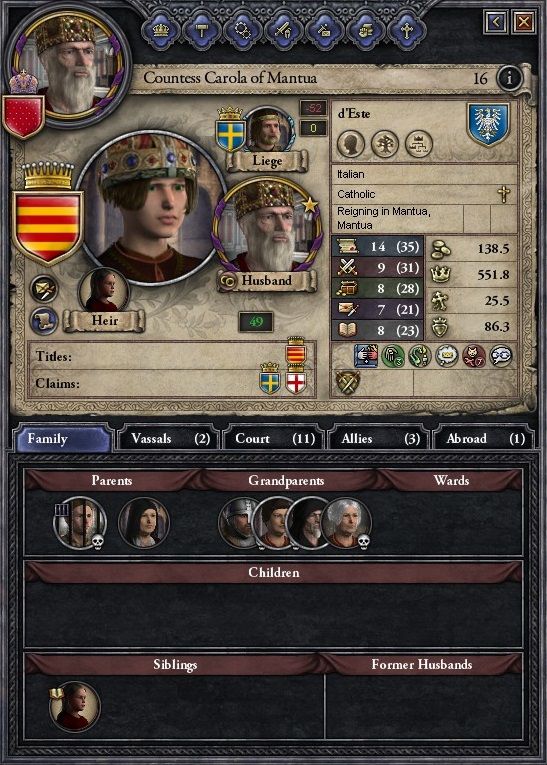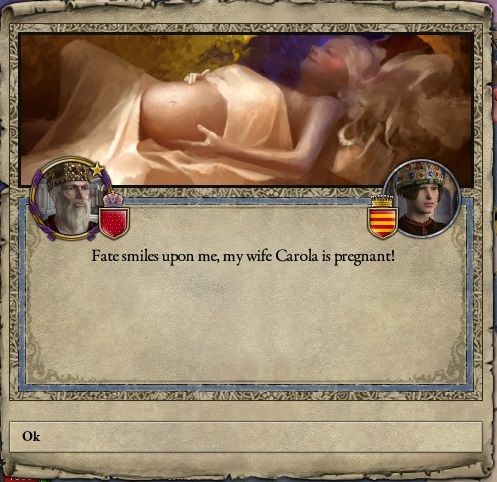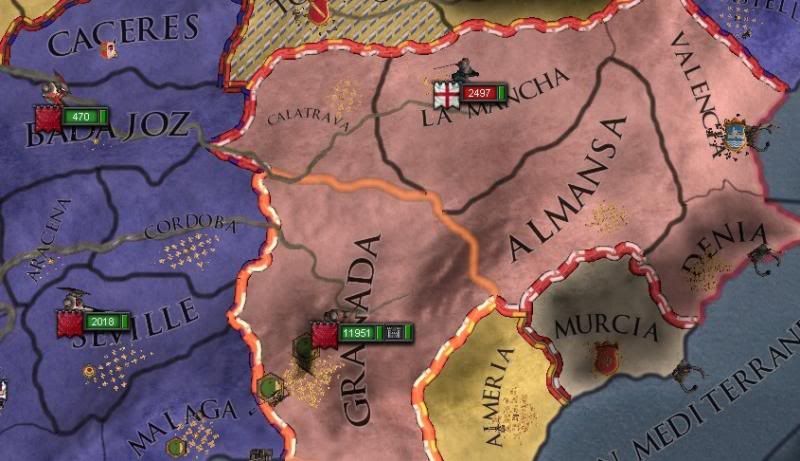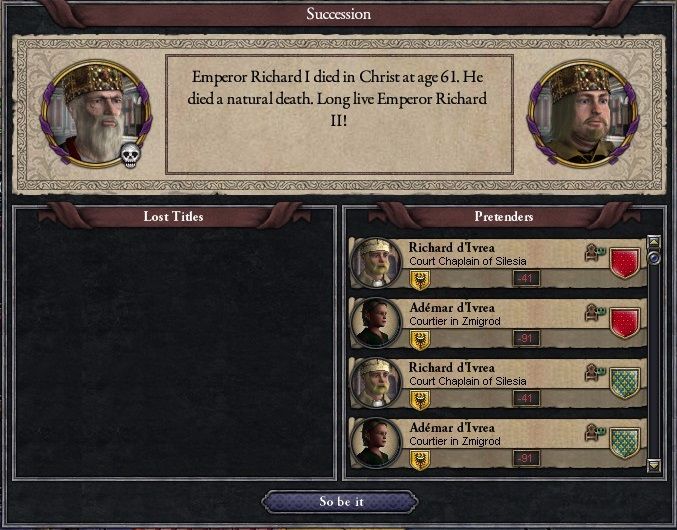Wow. I've finally read all of this fantastic AAR, and I'm reminded as to why I don't play CK2 all that much any more.
There are the good things - the heart-stopping action (especially under Guy), the risky wars, the clever political marriages, the unstoppable ascent from underage count to King and eventually Emperor, thrills which kept me on the edge of my seat and left me dreading the next gutsy move you'd try. And then there are the bad things which affected you - like the annoyingly singular Casus Belli system, easily invalidated wars, heirs making stupid marriages, and overpowered Republics seizing all the coastal towns, which are (in my opinion) some of the aspects of CK2's mechanics that really put me off what should be an otherwise fantastic game. It's a rollercoaster of emotions, and for that I'm glad that I'm the one reading about your triumphs and tribulations rather than the one playing =) How far ahead have you played?
I also like your faux-history book style of writing, interspersed with these really informal 'quotations' that might not be close to real medieval speech, but which serve to highlight the characters' natures and bring them to life to the present-day reader. As it is, too many established and aspiring history-book style authors take themselves and their writing far too seriously, and I'm really impressed by your innovative and individualistic style. And your writing is good enough that it really doesn't occur to me at all that English might not be your first language - are you a French Canadian, then?
I'll be following this from now on!
There are the good things - the heart-stopping action (especially under Guy), the risky wars, the clever political marriages, the unstoppable ascent from underage count to King and eventually Emperor, thrills which kept me on the edge of my seat and left me dreading the next gutsy move you'd try. And then there are the bad things which affected you - like the annoyingly singular Casus Belli system, easily invalidated wars, heirs making stupid marriages, and overpowered Republics seizing all the coastal towns, which are (in my opinion) some of the aspects of CK2's mechanics that really put me off what should be an otherwise fantastic game. It's a rollercoaster of emotions, and for that I'm glad that I'm the one reading about your triumphs and tribulations rather than the one playing =) How far ahead have you played?
I also like your faux-history book style of writing, interspersed with these really informal 'quotations' that might not be close to real medieval speech, but which serve to highlight the characters' natures and bring them to life to the present-day reader. As it is, too many established and aspiring history-book style authors take themselves and their writing far too seriously, and I'm really impressed by your innovative and individualistic style. And your writing is good enough that it really doesn't occur to me at all that English might not be your first language - are you a French Canadian, then?
I'll be following this from now on!



